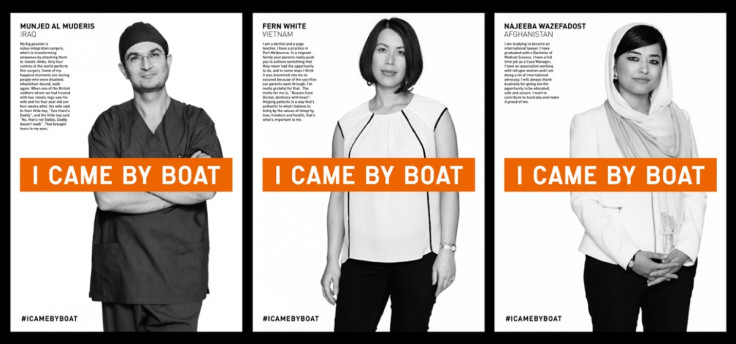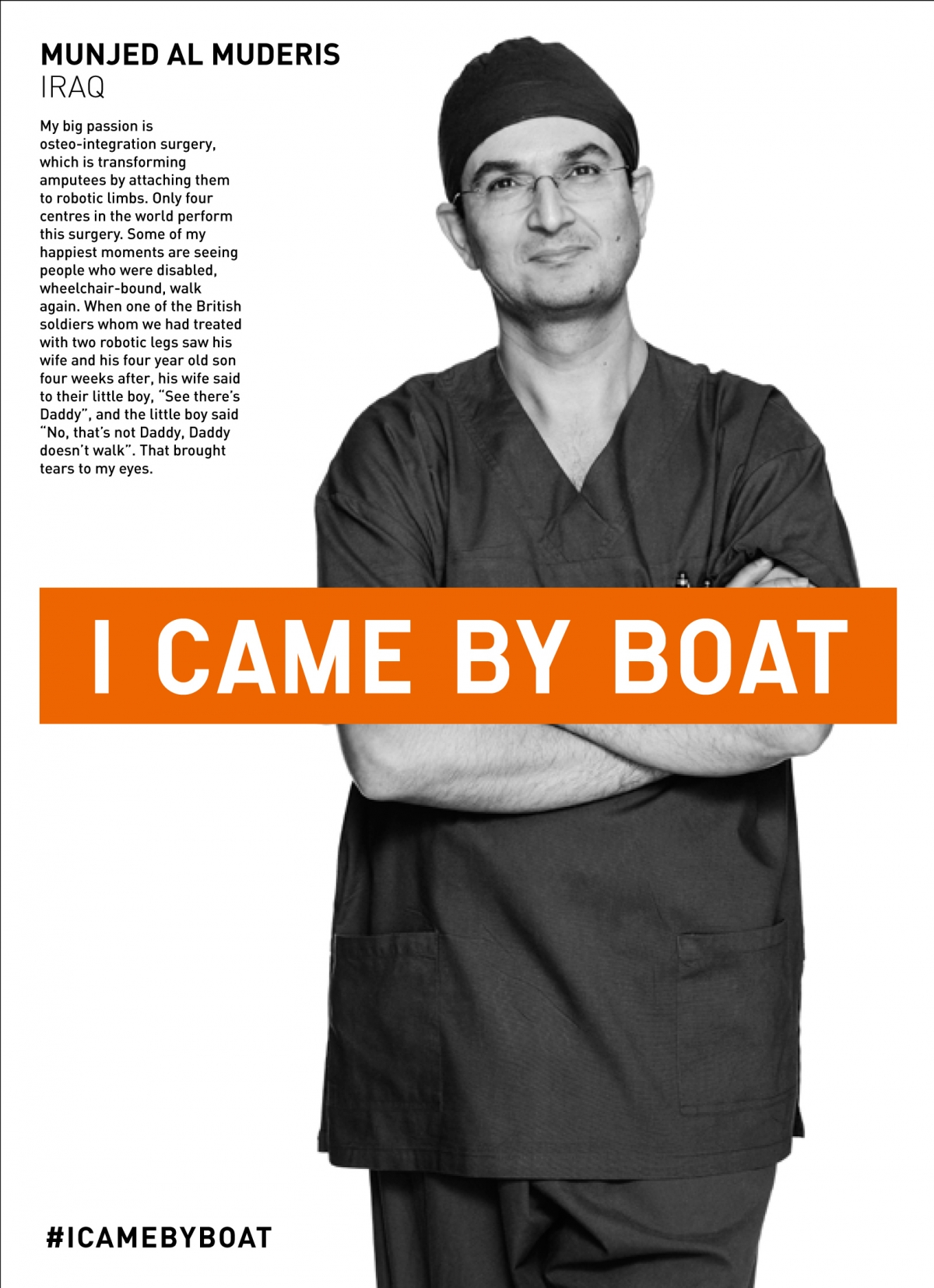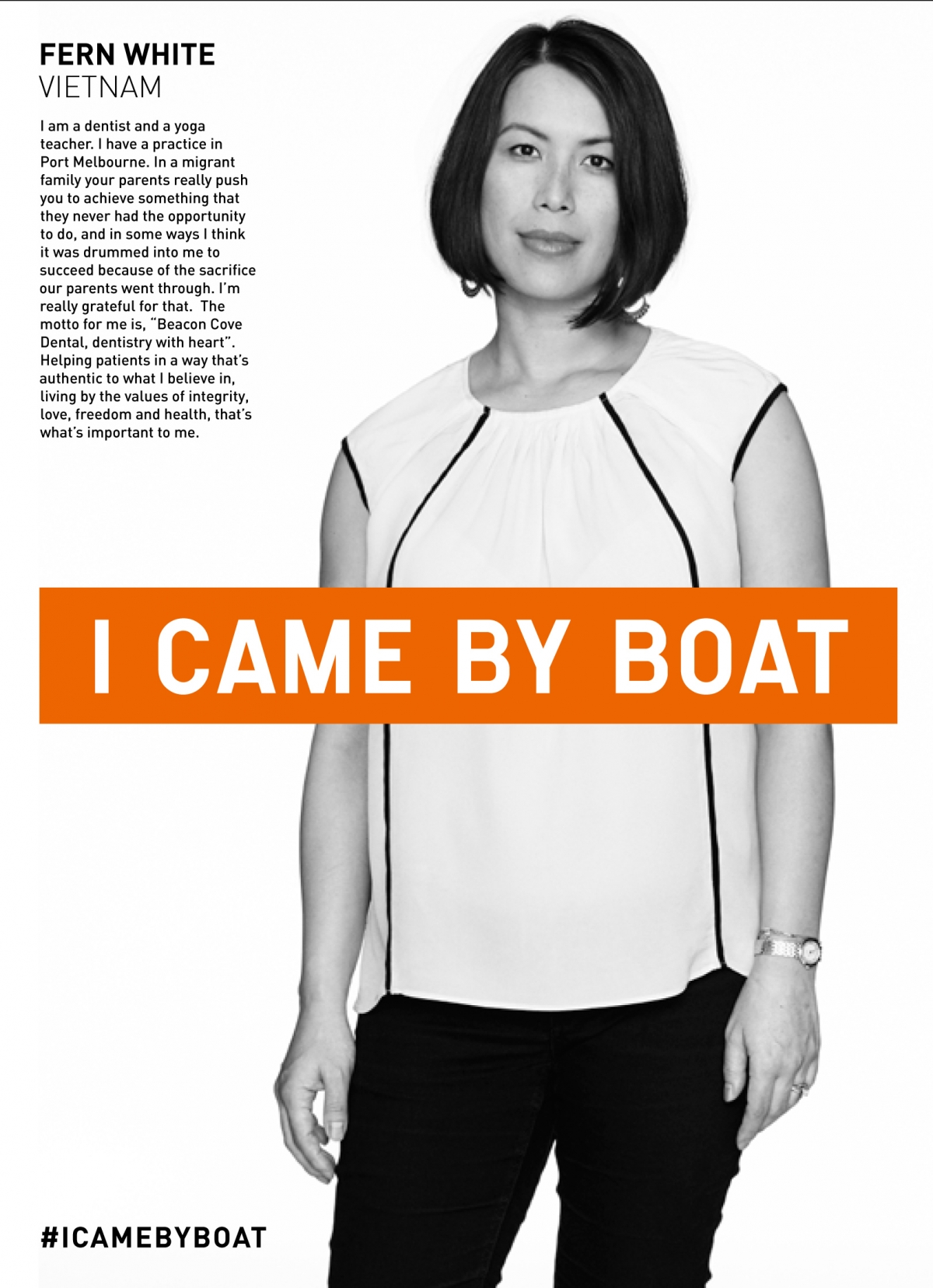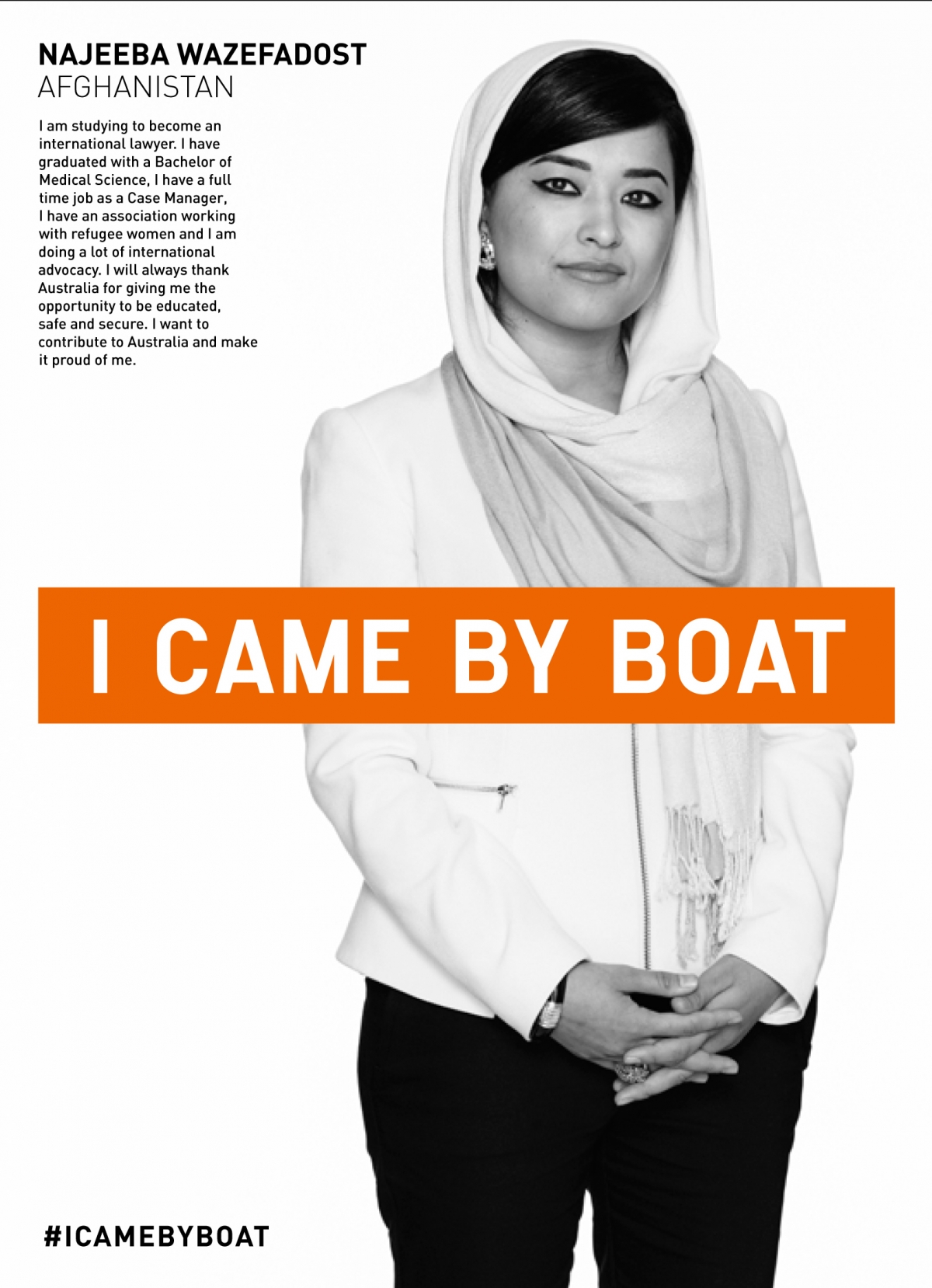I Came By Boat: Australia's treatment of asylum seekers is inhumane - that's why I started this campaign

I find it surprising how smart, educated people can be among those getting caught up in often misleading and factually inaccurate dialogue about asylum seekers. Whether this is political, in the media, driven by various interests or just plain misinformed, the facts seem to get lost, and lots of labels get used that have no basis in truth. Illegals. Queue jumpers. Country shoppers. One actually needs to make some effort to research the subject before getting to the facts.
FACT. Asylum seekers who enter Australia without a valid visa by boat or plane do not do so illegally. They are permitted to enter without prior authorisation because this right is protected by Article 31 of the 1951 Refugee Convention, which recognises they may have good cause for entering without a visa: war, political, religious persecution, torture. It was brought in after the Second World War and Australia is a signatory to this Convention, as are 141 other states, including the UK, and the US.
In November, Australia's human rights record was targeted by more than 100 countries at the UN, with the treatment of asylum seekers, as well as Indigenous people, a top focus of criticism. The controversial Australian Border Force's random visa checks resulted in protests in August, and just this week a programme run by nuns that took children in immigration detention on day trips to farms and petting zoos has reportedly been cancelled because it is "inappropriate".
According to the Sydney Morning Herald, detention centres have been described as prisons where more asylum seekers are being placed in isolation. Amnesty International Australia refugee coordinator Graham Thom said security had been heightened and now had a worrying "hands on" approach, which left great concerns about what that was doing to the mental health of asylum seekers in detention.
You have to be pretty desperate to pack up and leave your life behind. My city was completely destroyed during siege; many of my friends and family were killed, tortured or disappeared
In Australia, many asylum seekers are vilified, and treated in the most inhumane way possible. They are dehumanised on our TV, in newspapers, by politicians, leaders and former leaders. It is hard to just stand by.
So I decided to join the debate. I am not a politician, lawyer, writer, journalist, doctor or a social worker. I am a makeup artist, so my skill isn't that beneficial in this instant. But I was a refugee myself. I come from former Yugoslavia, from the town of Vukovar, the site of first mass atrocity in the Balkan wars. My city was completely destroyed during the siege; many of my friends and family were killed, tortured or disappeared. Some were never found.
I know that it isn't easy to leave your home. In fact, it is the hardest thing you'd ever do, leaving everything that is familiar: your friends, family, familiar streets, smells, customs, language –everything we take for granted in the free world we live in. I can assure you no one wants to do that. You have to be pretty desperate to pack up and leave your life behind.
According to the UN, there are nearly 60 million people around the world who are displaced by war, conflict or persecution. The continuing conflict in Syria is one of the major reasons for this. More and more people are suffering, and many of them are children. Humanitarian organisations simply don't have the capacity to help them all. Governments need to step in and step up.
There are nearly 60 million people around the world who are displaced by war, conflict or persecution. More than 3000 people have died in the Mediterranean so far in 2015
Anyone who has ever travelled to an unknown country could imagine how difficult it would be if you suddenly found yourself there alone, with no family, friends, connections, knowledge of language, and unable to go home. Even if you found immediate assistance and a friendly welcome, you would feel isolated because of the language barrier and the slightest cultural differences. Imagine then being also demonised and treated like a criminal in the country where you are asking for help.
So to start with I wanted to show compassion and empathy. I also knew great people in the fashion and advertising industries with skills to produce something that could have impact. I threw them a challenge and they responded. We started creating this campaign, I Came By Boat. We wanted to try to somewhat counteract the negative attributes forced upon people seeking Australia's protection.




It is easy to demonise the unknown, because we are naturally anxious and suspicious of it. It makes us uncomfortable. It doesn't take much. Our guiding principle was that if we make it more familiar, if we show its true face, then the fear can disappear. We thought we'd put a human face back on the asylum seeker issue.
We thought we should try to show that asylum seekers are ultimately people, just like anyone else – each has a name, a story, a dream, someone they love and someone who loves them. They want a good life, a free life, a future for their children. Why shouldn't they have a chance at that?
So far, we photographed three amazing people: Munjed Al Muderis, an orthopaedic surgeon, who fled from Iraq following an incident in which he refused to mutilate the ears of Saddam Hussein's army deserters and is now a pioneering surgeon giving amputees the ability to walk.
Fern White, a dentist whose parents fled Vietnam with her and her older brother in 1981; and Najeeba Wazefadost, a student in international law and Amnesty International ambassador whose family fled Taliban's genocidal massacres in Afghanistan when she was 12, and her younger brother was just days old.
They are human beings with skills, resourcefulness, resilience, and the kind of life experience that can only enrich our culture and understanding of the world if we take the opportunity to welcome them
They have extraordinary stories, they are living here as part of community, and contributing to it – and they came to Australia by boat.
They are human beings with skills, resourcefulness, resilience and the kind of life experience that can surely only enrich our culture and understanding of the world if we take the opportunity to welcome them. Locking up asylum seekers indefinitely is certainly inhumane – but it's not just that. It's also a wasted opportunity.
There's another misconception, that asylum seekers are coming to invade us, to take over, to change our culture. Is it not possible to have tolerance, to embrace and understand what is theirs and let it enrich our own culture? We have done it before, and we are better off because of it.
I was welcomed as a refugee. I was able to create a successful career as a makeup artist, in Australia and overseas. I would like to see that sort of opportunity given to all asylum seekers, no matter how they get here. Everyone needs a purpose. Everyone wants to be accepted, to be a part of the community.
I think we need to give people a chance to rebuild. The sooner they are given some assistance, the sooner these people will be able to resume their interrupted lives and the community and society will only be better off for it too. These people are not hostile; they are scared and scarred. Let's treat them with compassion.
Blanka Dudas is a makeup artist and founder of the I Came By Boat campaign. The campaign is currently crowdfunding to buy advertising space at bus shelters and train stations around the country. To find out more visit https://chuffed.org/project/i-came-by-boat
© Copyright IBTimes 2025. All rights reserved.






















